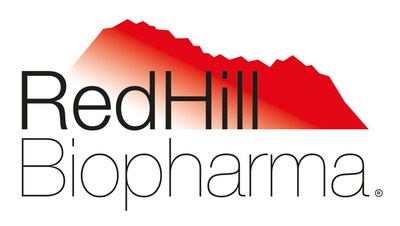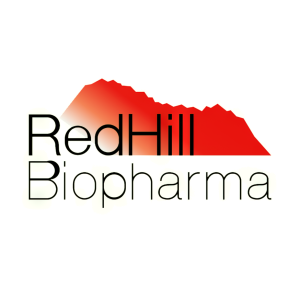RedHill and U.S. Army Announce Opaganib and RHB-107 Combinations with Remdesivir Show Distinct Synergistic Effect Against Ebola
- Opaganib and RHB-107 demonstrate robust synergistic effect in combination with remdesivir, improving viral inhibition while maintaining cell viability
- Both drugs have demonstrated activity against multiple viral targets, including COVID-19, and are expected to be effective against emerging viral variants
- Opaganib is believed to be the first host-directed molecule to show activity in Ebola virus disease, and RHB-107 has shown promising results in early COVID-19 outpatient treatment
- None.
Insights
The recent findings from the U.S. Army-funded Ebola virus study, involving opaganib and RHB-107, signify a potential advancement in antiviral therapy. The discovery of their synergistic effect with remdesivir could enhance the efficacy of treatments for viral diseases, such as Ebola and COVID-19. These developments are particularly noteworthy given the oral administration route of these drugs, which simplifies distribution and patient compliance.
From a medical research perspective, the ability of opaganib to increase survival time in mice infected with Ebola and the safety and efficacy displayed by RHB-107 in Phase 2 trials, are promising indicators of their therapeutic potential. The inclusion of RHB-107 in the ACESO PROTECT trial further underscores its relevance in the current medical landscape.
The implications of these findings for RedHill Biopharma are multifaceted. The successful development of opaganib and RHB-107 could lead to a diversification of the company's product portfolio, potentially increasing market share in the antiviral space. The novel mechanism of action as host-directed therapies positions these drugs as valuable assets in the fight against viral mutations and emerging variants.
Financially, the non-dilutive funding for the PROTECT Phase 2 RHB-107 arm indicates a strategic advantage, preserving shareholder value while advancing clinical trials. The market will be closely monitoring the progress of these trials, as positive outcomes could lead to significant stock price movements for RedHill Biopharma.
RedHill's investigational drugs are subject to rigorous regulatory scrutiny. The FDA's clearance for the PROTECT trial and the U.S. government's funding are indicative of the drugs' potential and the importance of developing treatments for diseases like Ebola and COVID-19. Intellectual property rights, particularly patents for these novel compounds, are likely to play a crucial role in protecting the company's investment and ensuring exclusive market rights upon successful approval.
Furthermore, the global nature of the PROTECT trial, spanning multiple countries, introduces complex regulatory landscapes that RedHill must navigate. Ensuring compliance with international regulations will be essential for the company's long-term success and ability to bring these drugs to market.
Investigational drugs opaganib and RHB-107 (upamostat) demonstrate distinct synergistic effect when combined individually with remdesivir, significantly improving potency while maintaining cell viability, in a new
Opaganib and RHB-107 are both novel, oral, host-directed, small molecule investigational drugs that are easy to administer and distribute, with demonstrated activity against multiple viral targets, including COVID-19, and are expected to be effective against emerging viral variants
Opaganib is believed to be the first host-directed molecule to show activity in Ebola virus disease, having recently delivered a statistically significant increase in survival time in a separate

"These encouraging in vitro results for opaganib and RHB-107 show a distinct synergy in terms of viral inhibition while maintaining cell viability (i.e., not increasing toxicity), when either is added to remdesivir, with opaganib showing the greatest synergistic effect in combination with remdesivir," said Jeffrey Kugelman, Ph.D., Major(P), US Army MSC, Branch Chief Synthetic Biology & Surveillance, Molecular Biology Division,
"Opaganib is believed to be the first host-directed molecule to show activity in Ebola virus disease, and these results add to a recent
Utilizing a checkerboard design to test the study compounds in combination, the study cell lines were pretreated and then infected with Ebola virus. The cells were fixed, washed and subjected to immunofluorescence staining using a virus-specific antibody. The raw data for the combination was analyzed to determine synergistic, additivity or antagonistic effects on viral inhibition while taking into account cell viability.
Twice daily administered opaganib has previously demonstrated benefit in late-stage clinical studies of patients hospitalized with moderate to severe COVID-19 and was selected by the NIH Radiation and Nuclear Countermeasures Program (RNCP) for Acute Radiation Syndrome development.
RHB-107 successfully met its
About Ebola virus disease:
According to the Centers for Disease Control and Prevention, Ebola disease is a rare and often deadly illness, caused by infection by one of a group of four viruses, known as ebolaviruses, that are found primarily in sub-Saharan Africa and are known as:
About Opaganib (ABC294640)
Opaganib, a proprietary investigational host-directed and potentially broad-acting drug, is a first-in-class, orally administered sphingosine kinase-2 (SPHK2) selective inhibitor with anticancer, anti-inflammatory and antiviral activity, targeting multiple potential diseases, including gastrointestinal acute radiation syndrome (GI-ARS), COVID-19, other viruses as part of pandemic preparedness, and cholangiocarcinoma (bile duct cancer).
Opaganib's host-directed action is thought to work through the inhibition of multiple pathways, the induction of autophagy and apoptosis, and disruption of viral replication, through simultaneous inhibition of three sphingolipid-metabolizing enzymes in human cells (SPHK2, DES1 and GCS).
Opaganib was selected by the
Opaganib has received Orphan Drug designation from the FDA for the treatment of cholangiocarcinoma and has undergone studies in advanced cholangiocarcinoma (Phase 2a) and prostate cancer. Opaganib also has a Phase 1 chemoradiotherapy study protocol ready for FDA-IND submission.
Opaganib has demonstrated antiviral activity against SARS-CoV-2, multiple variants, and several other viruses, such as Influenza A. Being host-targeted, and based on data accumulated to date, opaganib is expected to maintain effect against emerging viral variants. In prespecified analyses of Phase 2/3 clinical data in hospitalized patients with moderate to severe COVID-19, oral opaganib demonstrated improved viral RNA clearance, faster time to recovery and significant mortality reduction in key patient subpopulations versus placebo on top of standard of care. Data from the opaganib global Phase 2/3 study has been submitted for peer review and recently published in medRxiv.
Opaganib has also shown positive preclinical results in renal fibrosis, and has the potential to target multiple oncology, radioprotection, viral, inflammatory, and gastrointestinal indications.
About RHB-107 (upamostat)
RHB-107 is a proprietary, first-in-class, once-daily orally administered investigational antiviral, that targets human serine proteases involved in preparing the spike protein for viral entry into target cells. Because it is host-cell targeted, RHB-107 is expected to also be effective against emerging viral variants with mutations in the spike protein. RHB-107 is well tolerated; in the initial COVID-19 study, among 41 patients only one reported a drug-related adverse reaction (a mild, self-limited, rash).
In addition, RHB-107 inhibits several proteases targeting cancer and inflammatory gastrointestinal disease. RHB-107 has undergone several Phase 1 studies and two Phase 2 studies, demonstrating its clinical safety profile in approximately 200 patients[5].
RedHill acquired the exclusive worldwide rights to RHB-107, excluding
About USAMRIID
Since 1969, USAMRIID has served as the
About RedHill Biopharma
RedHill Biopharma Ltd. (Nasdaq: RDHL) is a specialty biopharmaceutical company primarily focused on gastrointestinal and infectious diseases. RedHill promotes the gastrointestinal drugs Talicia®, for the treatment of Helicobacter pylori (H. pylori) infection in adults[6], and Aemcolo®, for the treatment of travelers' diarrhea in adults[7]. RedHill's key clinical late-stage development programs include: (i) opaganib (ABC294640), a first-in-class oral broad-acting, host-directed SPHK2 selective inhibitor with potential for pandemic preparedness, targeting multiple indications with a
More information about the Company is available at: www.redhillbio.com / twitter.com/RedHillBio.
Forward Looking Statements
This press release contains "forward-looking statements" within the meaning of the Private Securities Litigation Reform Act of 1995. Such statements, including, but not limited to, statements regarding the intended use of net proceeds therefrom, may be preceded by the words "intends," "may," "will," "plans," "expects," "anticipates," "projects," "predicts," "estimates," "aims," "believes," "hopes," "potential" or similar words and include statements regarding compliance with the listing requirements of the Nasdaq Capital Market ("Nasdaq"), anticipated the addition of new revenue generating products, out-licensing of the Company's development pipeline assets, timing of opaganib's development for Acute Radiation Syndrome, non-dilutive development funding from RHB-107 and its inclusion in a key platform study. Forward-looking statements are based on certain assumptions and are subject to various known and unknown risks and uncertainties, many of which are beyond the Company's control and cannot be predicted or quantified, and consequently, actual results may differ materially from those expressed or implied by such forward-looking statements. Such risks and uncertainties include, without limitation, market and other conditions, the risk that the Company will not comply with the listing requirements of Nasdaq to remain listed for trading on Nasdaq, the risk that the addition of new revenue generating products or out-licensing transactions will not occur; the risk that acceptance onto the RNCP Product Development Pipeline will not guarantee ongoing development or that any such development will not be completed or successful; the risk that the FDA does not agree with the Company's proposed development plans for opaganib for any indication, the risk that observations from preclinical studies are not indicative or predictive of results in clinical trials; the risk that the FDA pre-study requirements will not be met and/or that the Phase 3 study of RHB-107 in COVID-19 outpatients will not be approved to commence or if approved, will not be completed or, should that be the case, that we will not be successful in obtaining alternative non-dilutive development funding for RHB-107, the risk that the Phase 2/3 COVID-19 study for RHB-107 and/or the Phase 2 ACESO PROTECT study for RHB-107 may not be completed or, if completed, may not be successful or, even if successful, may not be sufficient support for regulatory applications, including emergency use or marketing applications, the risk that RHB-107's late-stage development for non-hospitalized COVID-19 will not benefit from the resources redirected from the terminated RHB-204 Phase 3 study, and that additional COVID-19 studies for opaganib and RHB-107 are likely to be required, as well as risks and uncertainties associated with the risk that the Company will not successfully commercialize its products; as well as risks and uncertainties associated with (i) the initiation, timing, progress and results of the Company's research, manufacturing, pre-clinical studies, clinical trials, and other therapeutic candidate development efforts, and the timing of the commercial launch of its commercial products and ones it may acquire or develop in the future; (ii) the Company's ability to advance its therapeutic candidates into clinical trials or to successfully complete its pre-clinical studies or clinical trials or the development of a commercial companion diagnostic for the detection of MAP; (iii) the extent and number and type of additional studies that the Company may be required to conduct and the Company's receipt of regulatory approvals for its therapeutic candidates, and the timing of other regulatory filings, approvals and feedback; (iv) the manufacturing, clinical development, commercialization, and market acceptance of the Company's therapeutic candidates and Talicia®; (v) the Company's ability to successfully commercialize and promote Talicia® and Aemcolo®; (vi) the Company's ability to establish and maintain corporate collaborations; (vii) the Company's ability to acquire products approved for marketing in the
Company contact:
Adi Frish
Chief Corporate & Business Development Officer
RedHill Biopharma
+972-54-6543-112
adi@redhillbio.com
Category: R&D
[1] Opaganib is an investigational new drug, not available for commercial distribution.
[2] RHB-107 is an investigational new drug, not available for commercial distribution.
[3] Remdesivir, a leading COVID-19 therapy, is sold under the brand name Veklury® by Gilead Sciences, Inc. (Nasdaq: GILD)
[4] https://www.redhillbio.com/news/news-details/2023/RedHill-Announces-New-Non-Dilutive-External-Funding-of-Entire-RHB-107-COVID-19-300-Patient-Phase-2-Study/default.aspx
[5] https://www.ijidonline.com/article/S1201-9712(22)00638-5/fulltext
[6] Talicia® (omeprazole magnesium, amoxicillin and rifabutin) is indicated for the treatment of H. pylori infection in adults. For full prescribing information see: www.Talicia.com.
[7] Aemcolo® (rifamycin) is indicated for the treatment of travelers' diarrhea caused by noninvasive strains of Escherichia coli in adults. For full prescribing information see: www.aemcolo.com.
Logo - https://mma.prnewswire.com/media/1334141/RedHill_Biopharma_Logo.jpg
![]() View original content:https://www.prnewswire.com/news-releases/redhill-and-us-army-announce-opaganib-and-rhb-107-combinations-with-remdesivir-show-distinct-synergistic-effect-against-ebola-302020104.html
View original content:https://www.prnewswire.com/news-releases/redhill-and-us-army-announce-opaganib-and-rhb-107-combinations-with-remdesivir-show-distinct-synergistic-effect-against-ebola-302020104.html
SOURCE RedHill Biopharma Ltd.







